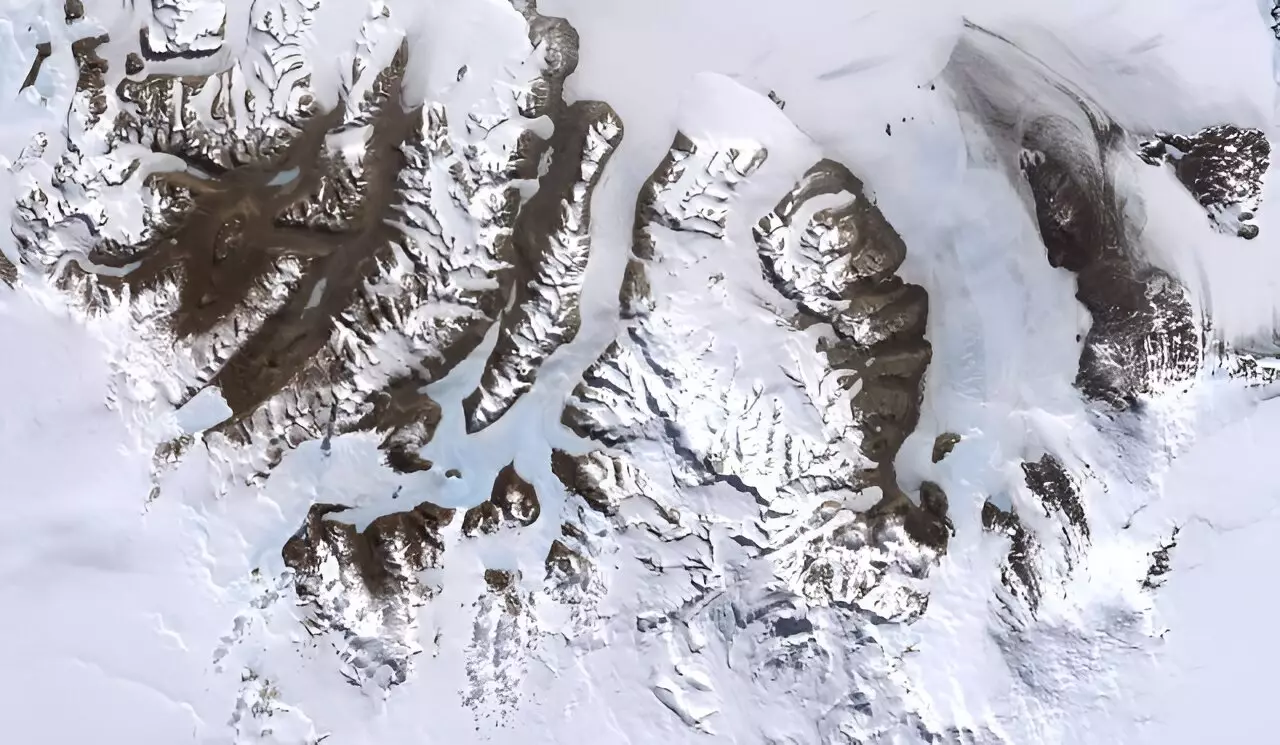Antarctica’s McMurdo Dry Valleys are known for their extreme dryness and unique ecosystem. Surrounded by mountains that block melting glacier water and with minimal humidity, these valleys rarely see rain. However, a drastic change occurred in March 2022 when temperatures soared more than 70°F above average, leading to significant consequences for the local invertebrate organisms.
The sudden spike in temperatures on March 18, 2022, was caused by a subtropical air mass sweeping over Antarctica, creating a transient heat wave in the midst of the polar winter. This anomaly caught the attention of Professor J.E. “Jeb” Barrett from Virginia Tech, prompting him to investigate the impact of this extreme weather event on the fragile ecosystem of the McMurdo Dry Valleys.
The invertebrate organisms in the McMurdo Dry Valleys rely on a frozen, inactive state to survive the harsh winters. The unseasonably warm temperatures in March led to a rapid thawing of the frozen ground, resulting in a mortality rate of over 50% for these creatures. This dramatic increase in deaths highlights the vulnerability of these microscopic animals to sudden climate shifts.
Barrett and his team utilized multispectral satellite images to observe the extent of ground melting following the March 2022 heatwave. By comparing images before and after the event, they determined that the darkened areas were a result of water from melting ice, rather than shadows or topography. Subsequent soil samples collected in December 2022 confirmed the high mortality rates among invertebrate populations in areas affected by the rapid thaw.
The implications of the March 2022 weather anomaly extend beyond the immediate impact on Antarctic ecosystems. Barrett emphasizes the need to study these events to better understand how future climate changes may affect fragile ecosystems worldwide. With projections of more extreme weather events in Antarctica, the research conducted in the McMurdo Dry Valleys serves as a critical reference point for predicting and mitigating the consequences of climate change.
The unexpected weather whiplash in Antarctica’s McMurdo Dry Valleys serves as a stark reminder of the fragility of ecosystems in the face of climate change. As temperatures continue to rise and extreme events become more frequent, the need to protect and preserve vulnerable habitats becomes increasingly urgent. The research conducted by Barrett and his team sheds light on the immediate and long-term effects of extreme weather on Antarctic ecosystems, providing valuable insights for future conservation efforts.


Leave a Reply